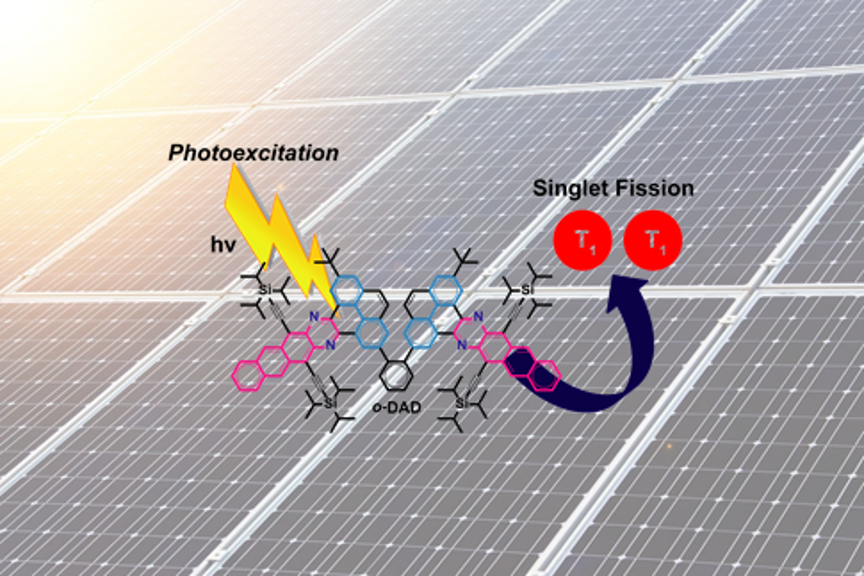
Singlet fission - the generation of two excited states from one of greater energy - has become a promising strategy to prevent the loss of energy in solar cells.
Singlet fission is a process that has been observed with efficiencies close to 200% in small graphene fragments known as "acenes" that consist of rings of carbon atoms.
In acenes, singlet fission efficiency increases with the number of rings and is particularly efficient in pentacene (five ring acene). However, the electronic properties of pentacene are not optimal for use in solar cells, and also pentacene has limited stability. In this sense, tetracene (four ring acene) has optimal electronic properties for use in solar cells and is more stable than pentacene. Even so, it is difficult to obtain efficiencies greater than 100% in tetracene derivatives.
The group of the Ikerbasque researcher Aurelio Mateo-Alonso (Koke) of the Basque Institute of Macromolecules (POLYMAT), in collaboration with researchers from the University of Erlangen and the University of Aveiro, has described a new family of tetracene derivatives where efficiencies of 125% are observed of singlet fission, which opens up new opportunities in the design of materials for integration into solar cells.
The article has been published in the prestigious magazine Angewandte Chemie and has been selected as HOT PAPER by evaluators and editors.
For further information: https://onlinelibrary.wiley.com/doi/10.1002/anie.201911529
.png)
